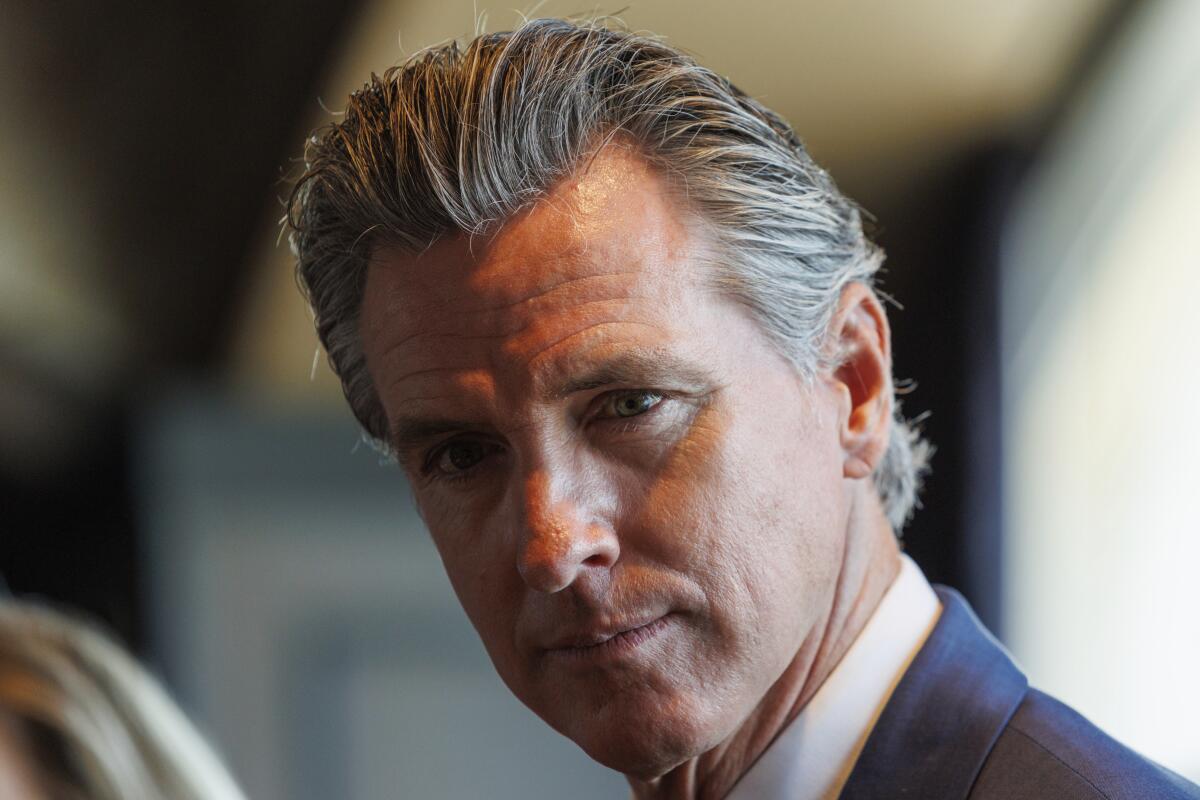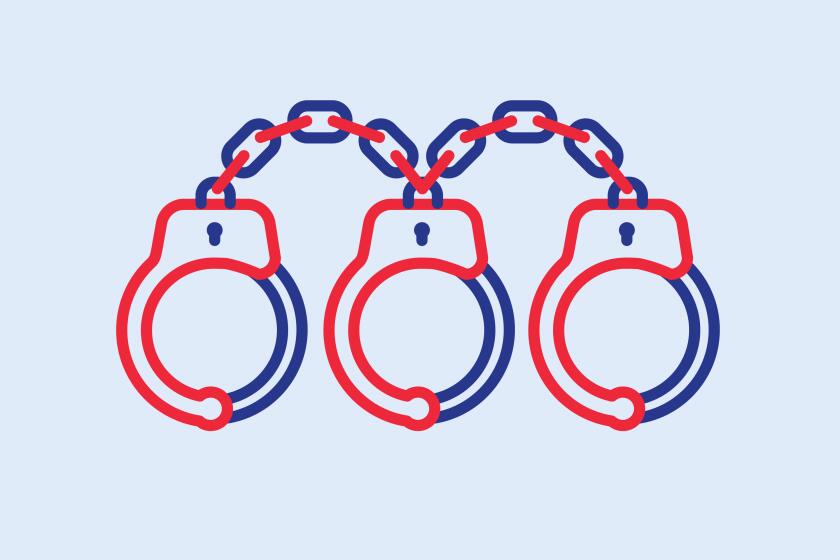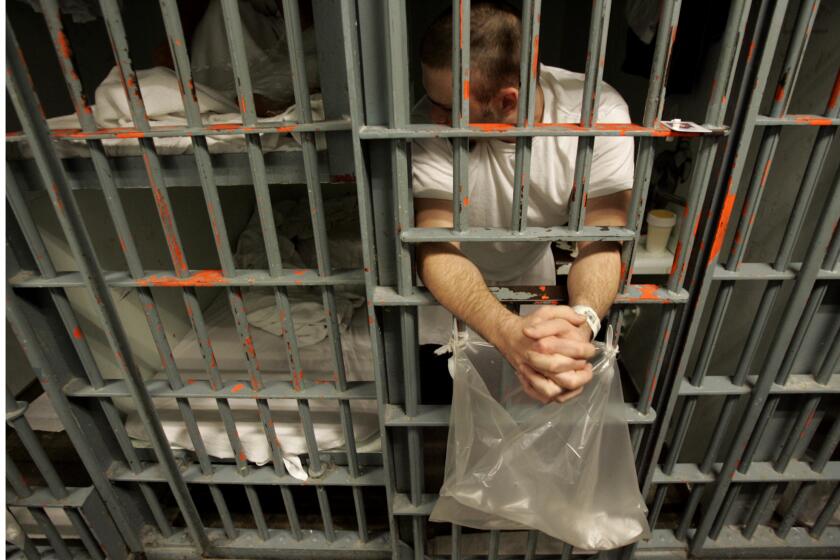Newsom appears unlikely to campaign heavily against Proposition 36 but cautions voters

SACRAMENTO — Gov. Gavin Newsom on Thursday was noncommittal when pressed about whether he plans to campaign against Proposition 36, a controversial anti-crime measure on the November ballot that targets theft and drug offenses and has divided Democrats.
“I fear I can’t do everything,” Newsom said Thursday in San Francisco’s Mission district during the signing of a major affordable housing package, saying that there is a lot on his plate between now and election day. “I’m trying to get Kamala Harris elected president of the United States. ... I just pray, I really do, people take a good look at Proposition 36.”
The ballot measure addresses drug and theft crimes by implementing stiffer penalties for repeat retail theft offenders, regardless of the value of merchandise stolen. It also would mandate drug treatment as an option, instead of jail time, for those who commit certain drug crimes. The measure would alter critical parts of Proposition 47, a ballot measure that voters overwhelmingly passed in 2014.
A new poll published Thursday found that 71% of likely California voters said they would vote in favor of Proposition 36. Another poll published in August by the UC Berkeley Institute of Governmental Studies and co-sponsored by the Los Angeles Times found that a smaller proportion of voters, but still a majority — 56% — are likely to support Proposition 36.
This measure asks voters to change parts of Proposition 47, a controversial ballot initiative passed in 2014 that turned some nonviolent felonies into misdemeanors.
“I was wondering what state I was living in,” Newsom said when he saw the poll results Thursday morning. “I know people are angry, I know people are frustrated. I am too. But this is not the way of solving it.”
For nearly nine months, Newsom has criticized the initiative, warning that the harms to Black and Latino communities will be “next-level.” He reiterated Thursday a point he has made several times during his last few public appearances: the fact that the measure is missing a funding plan. Newsom called it an “unfunded mandate.” Legislative analysts project it could cost the state hundreds of millions of dollars annually.
“There’s not one dollar attached to it,” said Newsom. “There’s this notion that it’s treatment on demand, which is a hell of a thing, considering there is not one dollar attached.”
Proposition 36 on California’s November ballot asks voters to change parts of Proposition 47, an initiative passed in 2014 that turned some felonies to misdemeanors.
The governor went on to criticize the drug treatment component of the measure, pointing out that it “guarantees” mental health treatment but questioning how that enforcement would work when residential treatment facilities in 22 of the state’s 58 counties “don’t exist.” He cautioned, “It’s about mass incarceration; it’s about a 1980s mindset.”
Proponents of Proposition 36 include a group of county district attorneys, law enforcement groups, Democratic Mayors London Breed of San Francisco, Matt Mahan of San José and Todd Gloria of San Diego, and a handful of moderate Democratic legislators. Major funders of the initiative include Walmart, which recently gave an additional million dollars. Target and Home Depot were initial funders, according to financial filings.
Meanwhile, major donations are ramping up on the No on Proposition 36 campaign, including from criminal justice reform donors: Patty Quillin with $500,000, Stacy Schusterman with $325,000, Quinn Delaney with $225,000 and the ACLU of Northern California with $120,000. Opponents of the measure include a long list of elected Democrats and criminal justice advocacy groups.
Along with Proposition 36, Newsom referred to a slew of other November ballot measures that concern him, including a measure that could raise taxes on health insurance providers. He expressed doubt about his ability to campaign against them.
“It’s a question of bandwidth,” the governor said.
More to Read
Sign up for Essential California
The most important California stories and recommendations in your inbox every morning.
You may occasionally receive promotional content from the Los Angeles Times.













